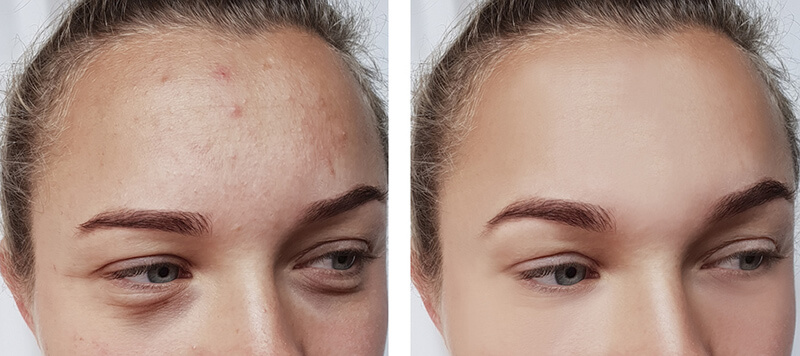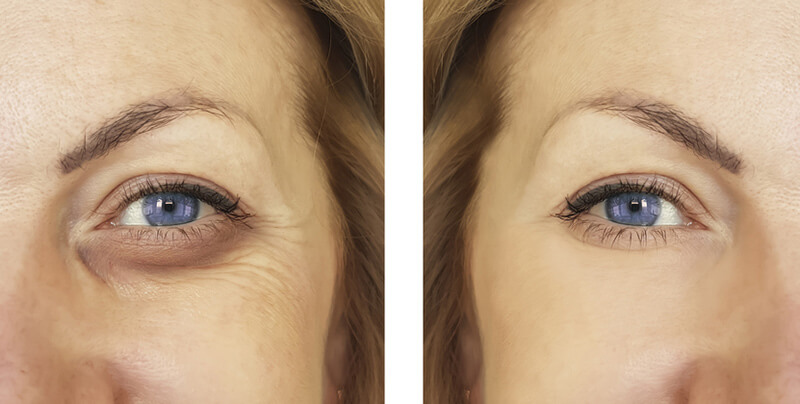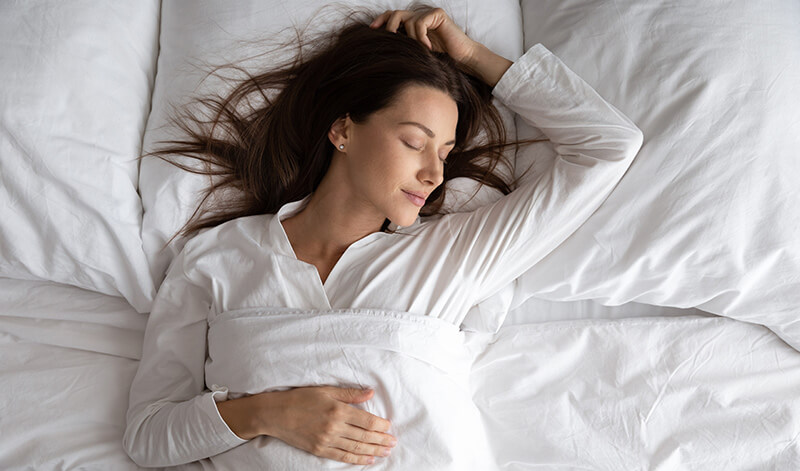Sleep Benefits the Health and Appearance of Your Skin
Posted on |

Knowing the benefits of sleep for your skin health and appearance might just strengthen your resolve to get the rest you deserve.
Occasional sleep debt is unlikely to cause significant harm to your overall health. But losing just a few hours of precious sleep multiple times a week can take a considerable toll on your health and skin.
Far too many people function on considerably less sleep than their body needs. For some, sleep loss is an occasional problem. For others, sleep deprivation is an ongoing concern. It’s a holding pattern that continues for weeks, months, or even years at a time.
During sleep, your muscles relax, your breathing slows, and your body has the time it needs to repair. Sleep is essential for your physical and emotional health. But the demands of a hectic lifestyle can often mean settling for less sleep than your body requires.
Signs and Symptoms of Sleep Deprivation
While you may feel rested after taking a nap or sleeping in on the weekend, remember that sleep debt is not easily repaid. If you’ve been getting by on too little sleep, you’ll likely recognize any number of the following signs and symptoms:
• Feeling sleepy or out of sorts upon waking
• Dependence on caffeine or energy drinks
• Lack of energy, daytime fatigue, or sleepiness
• Mood swings, irritability, or impulsiveness
• Difficulty with concentration or focus
• Loss of motivation or reduced sex drive
• Symptoms of depression or anxiety
• Weight gain or food cravings
Over time, sleep deprivation increases your risk of developing cardiovascular disease, mood disorders, metabolic disturbances, and more. Although you might naturally assume that sleeping in occasionally makes up for lost sleep, it doesn’t. It can take an extended period of time for your body and your skin to fully recover.
How Sleep Contributes to Healthy Skin Function
By day, your skin is hard at work protecting itself from the detrimental effects of UV exposure, environmental toxins, and other causes of free radical damage. While you sleep, skin function shifts from protective to restorative. To determine how your complexion might benefit from rest, consider the following observations:
Skin is More Absorbent at Night
Melatonin and human growth hormone (HGH) production increase during sleep. This accelerates skin regeneration and the production of antioxidant enzymes within the body.
Skincare products formulated for nighttime use contain a wide range of active ingredients. These ingredients enhance your skin’s natural ability to rejuvenate and repair.
As your body uses sleep to recover, nighttime skincare products speed up the process. The active ingredients increase the skin’s surface temperature and shift hormonal production. Their effects enhance the permeability of your skin, making it far more receptive to any retinoids, peptides, and vitamins from serums.
Collagen Production Increases During Sleep
Collagen is an essential protein found throughout your body. It provides structure and support to your bones, muscles, and connective tissues.
Collagen found in the skin helps maintain a youthful and vibrant appearance. Research shows that the release of growth hormones during sleep stimulates collagen production. That means supporting collagen production with sufficient rest can help keep your skin resilient. It also proves how sleep affects many signs of premature aging, including loss of firmness, fine lines, and wrinkles.
Skin Cell Turnover Accelerates
As we age, skin cells take longer to produce. On average, new skin cells form every 28 to 48 days. Increasing the rate at which your cells turnover keeps skin fresh and supple.
While you sleep, your body is hard at work expelling toxins, eliminating depleted skin cells, and creating new cells to take their place. Circadian rhythms at night stimulate cell regeneration and accelerate skin cell turnover. A good night of rest helps keep your skin smooth, supple, and blemish-free. It also enhances the rejuvenating effects of your skincare products.

Moisture Levels Balance
There is a correlation between healthy sleep habits and moisture balance in skin. During sleep, your body works to remove excess water. Your skin then utilizes the excess water recovered to increase its moisture content.
When you deprive your body of sleep, your skin’s moisture balance is affected. This can often result in dry skin, pronounced lines and wrinkles, and dark circles and puffiness around the eyes.
Research shows that an increase in moisture retention provides additional UV protection, heals skin damage, and counteracts the visible signs of aging. If you sleep between seven and nine hours each night, you will likely wake up with more hydrated skin than if you sleep five hours or less. Insufficient sleep will make your skin more prone to dryness, dark circles, puffiness, skin sagging, and wrinkles.

Since fluids accumulated throughout the body are redistributed as you slumber, your skin should look refreshed upon waking. If your morning reflection reveals facial puffiness or bags beneath your eyes, get more sleep! You are likely seeing evidence of a body deprived of sufficient time to achieve fluid balance.
When you don’t get enough restorative sleep, the delicate tissue beneath the eyes doesn’t have adequate time to tighten as fluids redistribute.
Cortisol Levels Decrease
Cortisol is a hormone released during times of physical or emotional stress. Although this stress hormone has anti-inflammatory properties, too much of it can cause harm.
Elevated cortisol levels can trigger inflammatory responses shown to inhibit healthy skin function. Cortisol can also impair circulation and breakdown collagen and hyaluronic acid reserves in your skin.
Since cortisol levels decrease during sleep, getting enough shut-eye fights inflammation and redness. About eight hours of limited cortisol production each day can help keep your complexion firm, smooth, and blemish-free.
Keeping Your Skin Healthy, Youthful, and Vibrant at Every Age
Unleashing your skin’s natural ability to rejuvenate and repair requires regular exercise, healthy food choices, and adequate rest. During sleep your immune system kicks into high gear and skin renewal accelerates. While you might believe you’re functioning fine while sleeping less than required, a sleep debt of just a few hours each week can have a significant impact on the health and appearance of your skin.

Although sleep plays an important role in skin health and appearance, lifestyle modifications alone will not solve every skin issue. For skin rejuvenation in Denville, NJ, contact Vibrance Medspa for a complimentary consultation.
Celebrating 12 years of beauty, Vibrance MedSpa offers a wide range of products and services developed to help keep your skin smooth, youthful, and vibrant at every age. Located in the Shoppes at Union Hill, our highly skilled staff of doctors and aestheticians provide the latest in non-surgical aesthetic enhancements and complete spa services to help you feel and look your very best.
